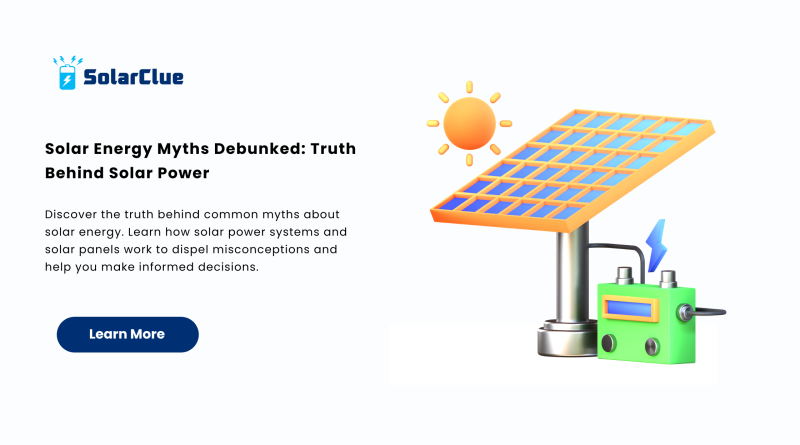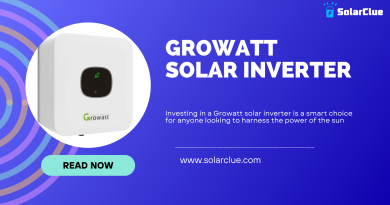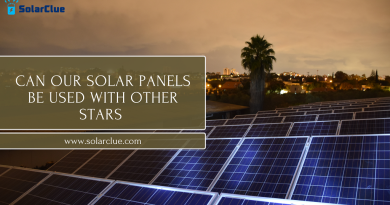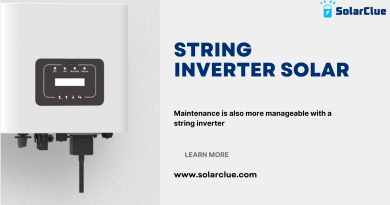Solar Energy Myths Debunked: Truth Behind Solar Power
Solar energy has become one of the most discussed topics in the renewable energy landscape. Despite its rapid growth and adoption globally, there are still many myths surrounding solar power. These misconceptions often deter homeowners and businesses from investing in solar power systems. In this blog, we will debunk some of the most common solar energy myths and provide the truth behind them.
Table of Contents
- 1 Myth 1: Solar Panels Don’t Work in Cloudy Weather
- 2 The Truth: Solar Panels Produce Energy in Diffused Light
- 3 Myth 2: Solar Panels are Too Expensive
- 4 The Truth: Solar Panels Offer Long-Term Savings
- 5 Myth 3: Solar Power Systems Require Constant Maintenance
- 6 The Truth: Solar Panels Require Minimal Maintenance
- 7 Myth 4: Solar Power Only Works in Hot Climates
- 8 The Truth: Solar Panels Work Well in Cooler Climates
- 9 Myth 5: Solar Panels are Too Complicated to Install
- 10 The Truth: Solar Panel Installation is Simpler Than You Think
- 11 Myth 6: Solar Panels Will Damage Your Roof
- 12 The Truth: Solar Panels Can Protect Your Roof
- 13 Myth 7: Solar Power Systems Are Not Efficient Enough to Power My Home
- 14 The Truth: Solar Power Systems Are Highly Efficient
- 15 Frequently Asked Questions (FAQs)
- 16 Conclusion: Is Solar Power Right for You?
Myth 1: Solar Panels Don’t Work in Cloudy Weather
One of the most common myths is that solar panels don’t work on cloudy days. While it’s true that solar energy production is lower on cloudy days compared to sunny days, solar panels can still generate electricity under overcast skies. Solar power systems work by capturing sunlight, and even diffused sunlight on cloudy days can be converted into energy. In fact, modern solar panels are designed to perform efficiently in various weather conditions, including cloudy and rainy days.
The Truth: Solar Panels Produce Energy in Diffused Light
Solar panels are designed to operate in a range of light conditions, including cloudy weather. Solar power systems are optimized to work with diffused light, ensuring that energy is still generated when the sun is not fully visible. It is important to note that while energy production may be lower, it does not mean solar panels are ineffective in such conditions.
Myth 2: Solar Panels are Too Expensive
Many believe that installing a solar power system is too costly, and it takes years to recover the investment. While the initial cost of installation can be high, the long-term savings and the growing affordability of solar panels make it a worthwhile investment. The cost of solar panels has significantly dropped over the years, making them more accessible to homeowners and businesses alike.
The Truth: Solar Panels Offer Long-Term Savings
The truth is that the upfront cost of installing a solar power system can be offset by the long-term savings on energy bills. Many countries and regions also offer incentives and subsidies that can help reduce the initial investment. Over time, solar power systems help homeowners and businesses save money by reducing reliance on grid electricity, and in some cases, generating excess energy that can be sold back to the grid.
Myth 3: Solar Power Systems Require Constant Maintenance
Another myth that discourages people from switching to solar power is the belief that solar power systems require constant maintenance. In reality, solar panels require very little maintenance once installed. They are designed to be durable and can last for many years with minimal care.
The Truth: Solar Panels Require Minimal Maintenance
Solar panels typically require periodic cleaning to remove dirt or debris that may block sunlight. In areas with heavy snowfall, you may need to ensure the snow doesn’t block the panels. Besides that, solar power systems require very little maintenance. Most solar panels come with warranties of 20-25 years, and if any issues arise, they can usually be addressed through customer service or professional repair services.
Myth 4: Solar Power Only Works in Hot Climates
Many people assume that solar panels work best only in sunny and hot climates. While solar energy production does increase in direct sunlight, solar panels can also perform efficiently in cooler climates. The efficiency of solar panels is not solely dependent on temperature but rather the amount of sunlight they receive.
The Truth: Solar Panels Work Well in Cooler Climates
In fact, solar panels can perform better in cooler temperatures. While they need sunlight to generate energy, excessive heat can reduce their efficiency. So, even in cooler or temperate climates, solar power systems can still provide significant energy production.
Myth 5: Solar Panels are Too Complicated to Install
Many people fear that the installation of solar panels is a complicated and time-consuming process. However, with advancements in technology and the increasing number of professional installers, the process has become more streamlined and straightforward.
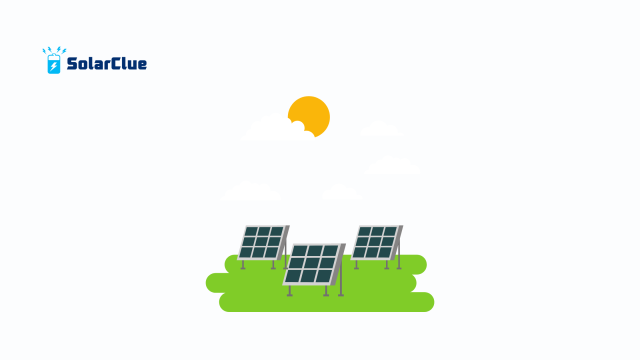
The Truth: Solar Panel Installation is Simpler Than You Think
Installing a solar power system is a relatively simple process when done by a professional installer. The time required for installation typically ranges from one to three days, depending on the size of the system. Professionals will ensure that your solar panels are installed in the most efficient manner possible, taking into consideration factors like roof orientation, shading, and local regulations.
Myth 6: Solar Panels Will Damage Your Roof
Some homeowners fear that installing solar panels on their roof will cause damage. However, when installed correctly, solar panels do not harm the roof. In fact, many solar panel installations protect the roof by providing an additional layer of shielding against the elements.
The Truth: Solar Panels Can Protect Your Roof
Solar panels are installed with special mounting systems that are designed to be secure yet non-invasive. These systems do not damage the integrity of the roof, and the panels can even protect it from wear and tear caused by environmental factors. Additionally, when professionally installed, the mounting systems are designed to avoid creating leaks or other issues.
Myth 7: Solar Power Systems Are Not Efficient Enough to Power My Home
Some believe that solar power systems cannot generate enough electricity to meet the demands of an average household. However, solar power systems have become more efficient over the years, and with the right system size, they can easily meet the energy needs of a typical home.
The Truth: Solar Power Systems Are Highly Efficient
With the right solar power system and proper installation, it is more than possible to power your entire home with solar energy. Depending on your energy needs, solar panels can provide a substantial portion, if not all, of your electricity consumption. Furthermore, solar panels can be coupled with battery storage to ensure that excess energy is stored and used during non-sunny hours.
Frequently Asked Questions (FAQs)
1. How much do solar panels cost?
The cost of solar panels depends on various factors, including the size of the system, location, and installation costs. However, the cost has significantly dropped in recent years, making it more affordable for homeowners and businesses.
2. How long do solar panels last?
Most solar panels last 20-25 years with minimal degradation. After this time, they will still produce energy, but their efficiency may be reduced by around 20%.
3. Do solar panels work in all weather conditions?
Yes, solar panels can still generate electricity in cloudy or rainy conditions, although their efficiency is higher on sunny days. Even in cloudy weather, solar panels can harness diffused sunlight.
4. Can solar panels increase the value of my home?
Yes, installing solar panels can increase the value of your home. Homes with solar power systems are often more attractive to buyers because of the long-term savings on electricity bills.
5. How do I maintain my solar power system?
Solar panels require minimal maintenance. Regular cleaning to remove dirt and debris is usually sufficient. Additionally, ensure that the panels are not obstructed by snow or leaves.
Conclusion: Is Solar Power Right for You?
Debunking these common myths should help you make a more informed decision about investing in solar energy. As we’ve seen, solar power is a viable, efficient, and cost-effective energy source for homes and businesses. Don’t let myths hold you back from embracing renewable energy. Visit us at solarclue.com and check out our blog at blog.solarclue.com to learn more and take the first step toward adopting solar power today.

